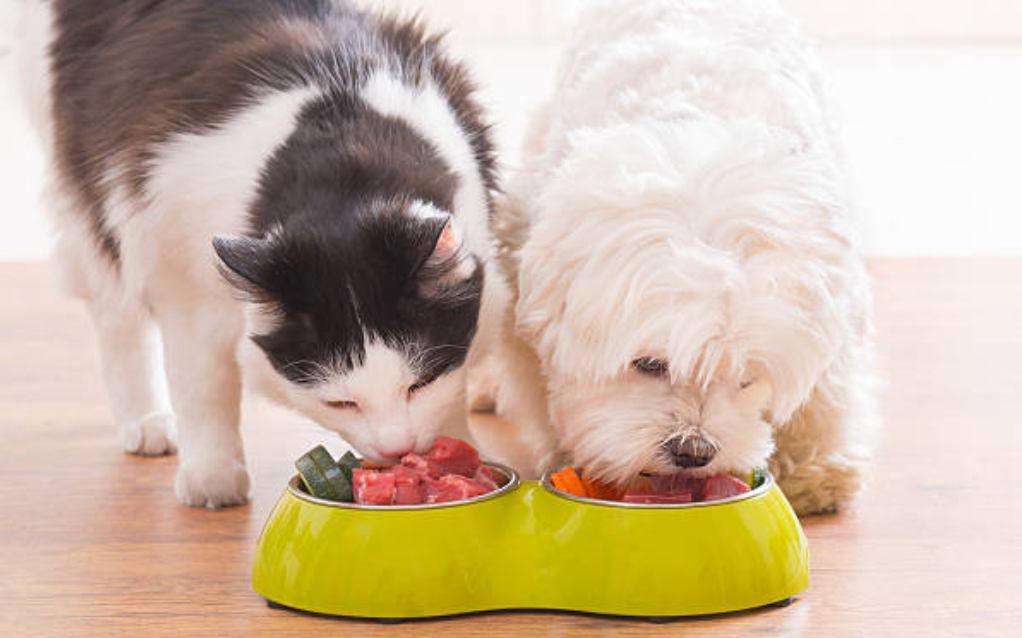When it comes to cats and their dietary habits, one peculiar behavior that often raises concerns is cats eating dog food. As a cat owner, I have encountered this situation firsthand and learned some surprising facts along the way. In this complete guide, I will share my experiences and provide you with valuable insights on this topic.
Understanding the Cat’s Dietary Needs
The Unique Nutritional Requirements of Cats
Cats have distinct dietary needs that differ from those of dogs. Cats are obligate carnivores, which means they require a diet primarily composed of animal-based proteins. Unlike dogs, cats have specific nutrient requirements that must be met to ensure their optimal health and well-being.
Differences Between Cat and Dog Diets
Cat and dog food formulas are designed to meet the specific nutritional needs of each species. Cat food contains essential nutrients such as taurine, arachidonic acid, and vitamin A, which are crucial for feline health. Dog food, on the other hand, may lack these vital nutrients in sufficient amounts for cats.
Common Reasons for Cats Eating Dog Food
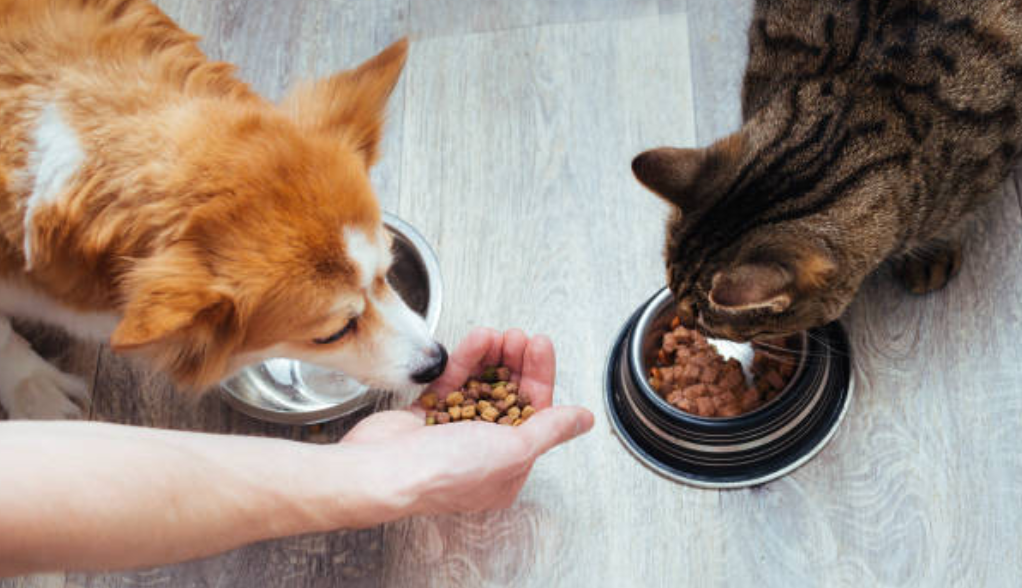
Curiosity and Exploration Cats are naturally curious creatures, and their inquisitive nature may lead them to investigate and sample dog food. I experienced this firsthand when my cat, Whiskers, started sneaking bites from our dog’s food bowl out of curiosity. She was simply intrigued by the different smells and textures.
Inadequate Cat Food Availability
In some instances, cats may resort to eating dog food if their food is not readily available. This can happen if there’s a shortage of cat food in the house or if their regular feeding routine gets disrupted. For example, when I ran out of cat food unexpectedly, Whiskers resorted to nibbling on our dog’s kibble until I could restock.
Potential Risks and Consequences
Nutritional Imbalances and Deficiencies
Dog food is formulated to meet the nutritional needs of dogs, not cats. Feeding cats dog food as their primary diet can result in nutrient imbalances and deficiencies. For instance, inadequate taurine intake from dog food can lead to serious health issues in cats, including heart problems and vision impairment.
Digestive Issues and Upset Stomach
Cats have sensitive digestive systems, and consuming dog food can cause gastrointestinal disturbances. The ingredients and proportions in dog food may not align with what cats require for proper digestion. This can lead to diarrhea, vomiting, and discomfort for your feline friend.
How to Prevent Cats from Eating Dog Food
10 Essential Tips for Feeding Your Vegan Cat: Best Comprehensive Guide
Choosing High-Quality Cat Food
To discourage your cat from eating dog food, opt for high-quality cat food that meets its specific nutritional needs. Look for formulas that are rich in animal proteins, contain essential vitamins and minerals, and are free from unnecessary fillers or artificial additives.
Establishing Feeding Routines and Separation
Establishing a consistent feeding routine for your cat can help prevent them from resorting to dog food. Feed your cat in a separate area away from the dog’s food bowl to minimize temptation. This separation ensures that your cat has access to their food without interference.
Addressing Behavioral Concerns
If your cat’s attraction to dog food persists, it might be worth addressing any underlying behavioral issues. Consult with a veterinarian or animal behaviorist who can guide you on modifying your cat’s behavior. They may recommend strategies such as positive reinforcement training or environmental enrichment to divert your cat’s attention away from dog food.
5 Common Reasons Why Your Cat Throwing Up Food: Best Complete Guide
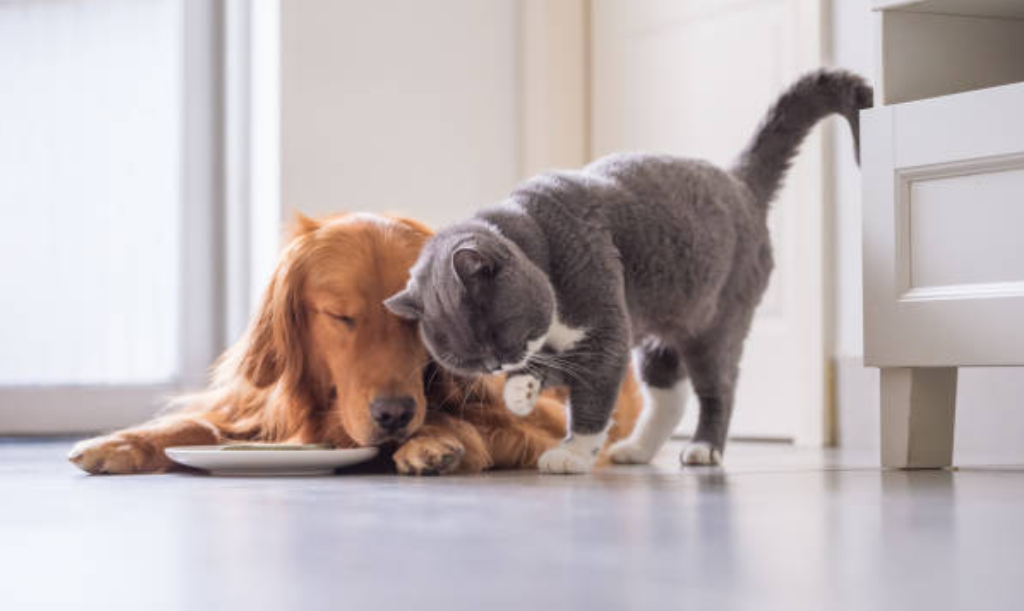
What to Do If Your Cat Eats Dog Food
Monitoring Your Cat’s Health
If you catch your cat eating dog food, closely monitor their health for any signs of digestive distress or nutritional deficiencies. Look out for symptoms like changes in appetite, weight loss, lethargy, or abnormal bathroom habits. If you notice anything concerning, contact your veterinarian for further evaluation.
Consulting a Veterinarian
It’s always a good idea to consult your veterinarian if your cat regularly consumes dog food or experiences any health issues. They can provide professional guidance tailored to your cat’s specific needs and recommend suitable dietary adjustments or supplements if necessary.
Transitioning Back to Proper Cat Diet
If your cat has developed a habit of eating dog food, it’s important to gradually transition them back to a proper cat diet. Introduce their regular cat food slowly, mixing it with small amounts of dog food, and gradually increasing the proportion of cat food over time. This gradual transition helps minimize digestive disturbances and encourages acceptance of their proper diet.
Frequently Asked Questions For Cats Eating Dog Food
10 Essential Tips for Managing Cat Litter in Pregnancy: Best Comprehensive Guide
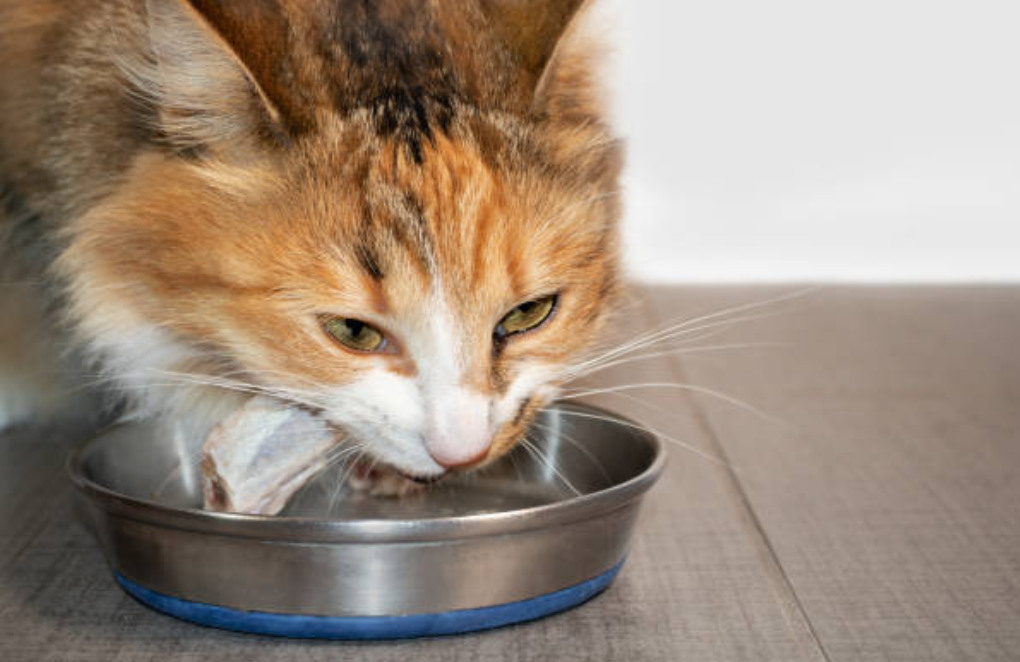
Q: Can cats survive on dog food alone?
A: While cats may eat dog food out of curiosity or necessity, it’s not suitable as a long-term diet. Cats have unique nutritional requirements that are different from dogs. Dog food lacks specific nutrients, such as taurine, that are essential for cats. Prolonged consumption of dog food can lead to nutrient imbalances and deficiencies, potentially causing serious health issues in cats. It’s important to provide cats with a balanced, species-appropriate diet to support their optimal health and well-being.
Q: Is it safe to mix cat and dog food?
A: It’s not recommended to mix cat and dog food regularly. Cat and dog foods are formulated differently to meet the specific nutritional needs of each species. Mixing the two may result in an unbalanced diet for both animals. Additionally, cat food often contains higher levels of certain nutrients, such as protein and fat, that may be excessive for dogs. To ensure proper nutrition, it’s best to feed cats and dogs their respective species-appropriate diets separately.
Q: How to introduce new cat food successfully?
A: When introducing new cat food, do it gradually over several days to avoid digestive upset. Start by mixing a small amount of the new food with the current food and gradually increase the proportion of the new food while reducing the old food. This slow transition allows the cat’s digestive system to adjust. Observe their response to the new food, looking for any signs of allergies or digestive issues. If necessary, consult with a veterinarian for guidance on proper food introduction for your specific cat.
Q: Why does my cat keep eating dog food even though I provide cat food?
A: There could be a few reasons why your cat continues to eat dog food. Firstly, it could be due to curiosity and exploration. Cats are naturally curious, and the different smells and flavors of dog food might intrigue them. Additionally, if your cat’s regular food is not readily available or there are disruptions in their feeding routine, they may turn to dog food as an alternative. It’s important to ensure that your cat has access to their food and establish a consistent feeding routine to discourage them from seeking out dog food.
Q: Are there any long-term health complications if my cat eats dog food regularly?
A: Yes, regular consumption of dog food can lead to potential long-term health complications for cats. Dog food is formulated to meet the nutritional needs of dogs, not cats. Cats have specific dietary requirements, such as the need for taurine, which is essential for their heart and vision health. Dog food may not provide adequate levels of taurine and other essential nutrients for cats, leading to nutrient deficiencies and imbalances over time. This can result in serious health issues, including heart problems, vision impairment, and overall compromised immune function. Providing your cat with a proper cat diet is crucial to their long-term health and well-being.
Conclusion
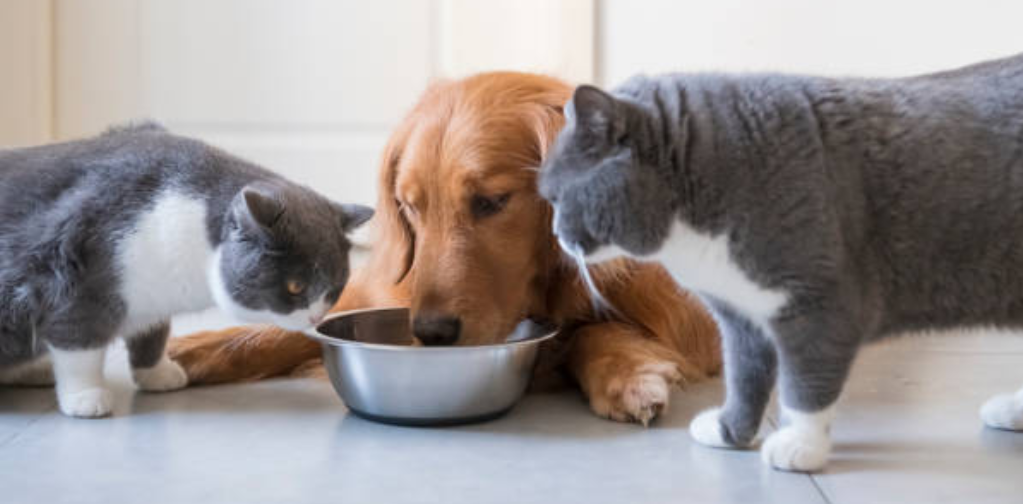
Proper nutrition plays a vital role in maintaining your cat’s overall health and well-being. Understanding the unique dietary needs of cats and taking preventive measures can help prevent cats from eating dog food. By providing them with a balanced, species-appropriate diet, you can ensure that your feline companion stays healthy and happy. Cats eating dog food most relevant content around the net www.rover.com, be.chewy.com, www.petmd.com
We value your thoughts and experiences! We invite you, our readers, to share your insights and stories in the comments section below. Have you ever encountered a situation where your cat showed interest in dog food? Or do you have tips on how to successfully transition a cat back to its proper diet? Perhaps you have questions or concerns regarding this topic. Whatever it may be, we would love to hear from you. Your comments not only contribute to the discussion but also create a supportive community where we can learn from one another. So go ahead, leave a comment, and let’s engage in a conversation about cats, dog food, and everything in between!
